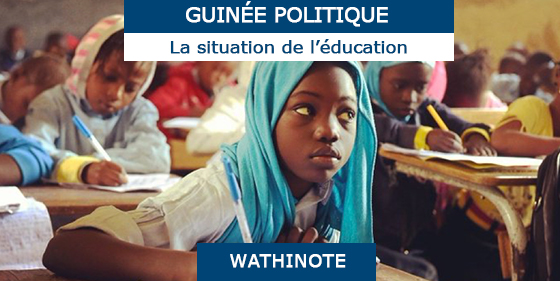Auteurs: Damien de Walque and Dimitris Mavridis
Site de publication: World Bank Blogs
Type de publication: Article
Date de publication: Mars 2022
Liens vers le document original
*Les Wathinotes sont des extraits de publications choisies par WATHI et conformes aux documents originaux. Les rapports utilisés pour l’élaboration des Wathinotes sont sélectionnés par WATHI compte tenu de leur pertinence par rapport au contexte du pays. Toutes les Wathinotes renvoient aux publications originales et intégrales qui ne sont pas hébergées par le site de WATHI, et sont destinées à promouvoir la lecture de ces documents, fruit du travail de recherche d’universitaires et d’experts
The COVID pandemic had a large impact on human development outcomes across the world. School shutdowns caused large learning losses. Learning losses were even greater for disadvantaged children. In many countries, school enrollment decreased, and dropout rates increased. The human capital loss due to the pandemic will likely be felt for decades, as it affected an entire generation of children.
Beyond COVID infections and mortality, the pandemic also deteriorated health outcomes as public authorities narrowed their focus on COVID, at the expense of other health objectives. The utilization of health services fell considerably during COVID in Western African countries, especially for children and women. The disruption of these other services is likely to have led to excess mortality for children, pregnant women and mothers.
Cash transfers have been extensively used as a tool to soften the negative impacts of the pandemic. It might be too early to assess to what extent they have succeeded in mitigating some of these negative effects. However, in a recent working paper, we use data from a randomized cash transfer experiment in Guinea, a country affected by the Ebola epidemic in 2014-16 to draw lessons from that earlier–but in many facets similar–experience for the COVID pandemic. The Guinean government’s response to the Ebola epidemic resembles the one deployed against COVID: it closed schools and lockdowns were established. During the epidemic, an emergency cash transfer program was piloted and targeted to poor villages in the country. The program paid families modest amounts (up to 16 USD/child/quarter) over two years. In randomly selected villages, households received cash conditional only on attending information sessions promoting good health practices and schooling. Other comparable households in these villages only received the information campaign (and no cash). To measure the effect of the program, we conducted an impact evaluation including randomly selected control villages that did not receive the program. Our evaluation results allow us to draw three main lessons in terms of effects in mitigating the pandemic impacts:
- Cash transfers had a large effect, increasing school enrollment by more than 11 percentage points. Girls and boys benefitted equally from this increase in enrolment. Children at the critical young ages (8-12) at which parents make the choice about sending them to school were those who benefitted more. Although the information campaign alone did result in high enrollment, the cash program had a significantly larger impact.
- In parallel to the increase in school enrollment, learning outcomes also increased everywhere in Guinea between 2014 and 2018. However, in line with results in most of the literature, our evaluation does not find that children in treated villages improved their learning outcomes in Mathematics and French more than those in control villages. The massive enrollment increase could have lowered school quality but it is unlikely to be the main driving force behind the absence of learning impacts. This disappointing result suggests that supply-side interventions, improving the learning environment such as school and teacher quality like the teacher incentives schemes evaluated in Guinea by Barrera-Osorio et al. (2022), is at least as important to promote skill acquisition, compared to reducing schooling costs and increasing the demand for schooling.
- We were also hoping to see an effect on children’s vaccination rates, as part of the program consisted of an information campaign to raise awareness about health behaviors, including the benefits of vaccinations. Alas, vaccination rates plummeted all over the country during the pandemic and did not recover afterwards. This is partly due to bottlenecks in the supply of vaccines to primary health centers. The program did not mitigate this fall as vaccination rates fell everywhere.
The Guinean government’s response to the Ebola epidemic resembles the one deployed against COVID: it closed schools and lockdowns were established. During the epidemic, an emergency cash transfer program was piloted and targeted to poor villages in the country
Taken together, these lessons suggest that during an epidemic, cash transfers can help families to keep their children in school. But other interventions are also needed. Crucially, beyond the epidemic emergency, the public health authorities should not lose focus on their other functions and objectives. Vaccination rates plummeted during the Ebola pandemic and there is evidence of similar shortfalls in the wake of the COVID-19 pandemic. In the absence of efforts to catch-up with optimal vaccination levels, this might lead to avoidable excess deaths. Finally, increasing school enrollment is a necessary objective in places where it is low, but interventions to improve the learning environment are also needed to ensure that children acquire the skills to become more productive later in life.


Commenter